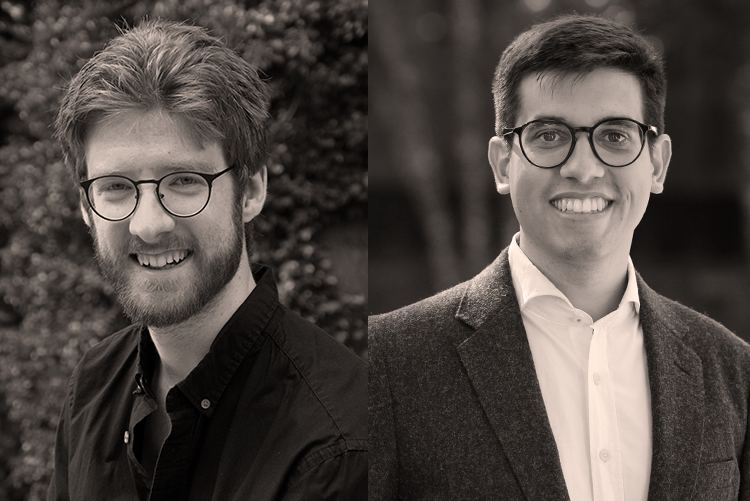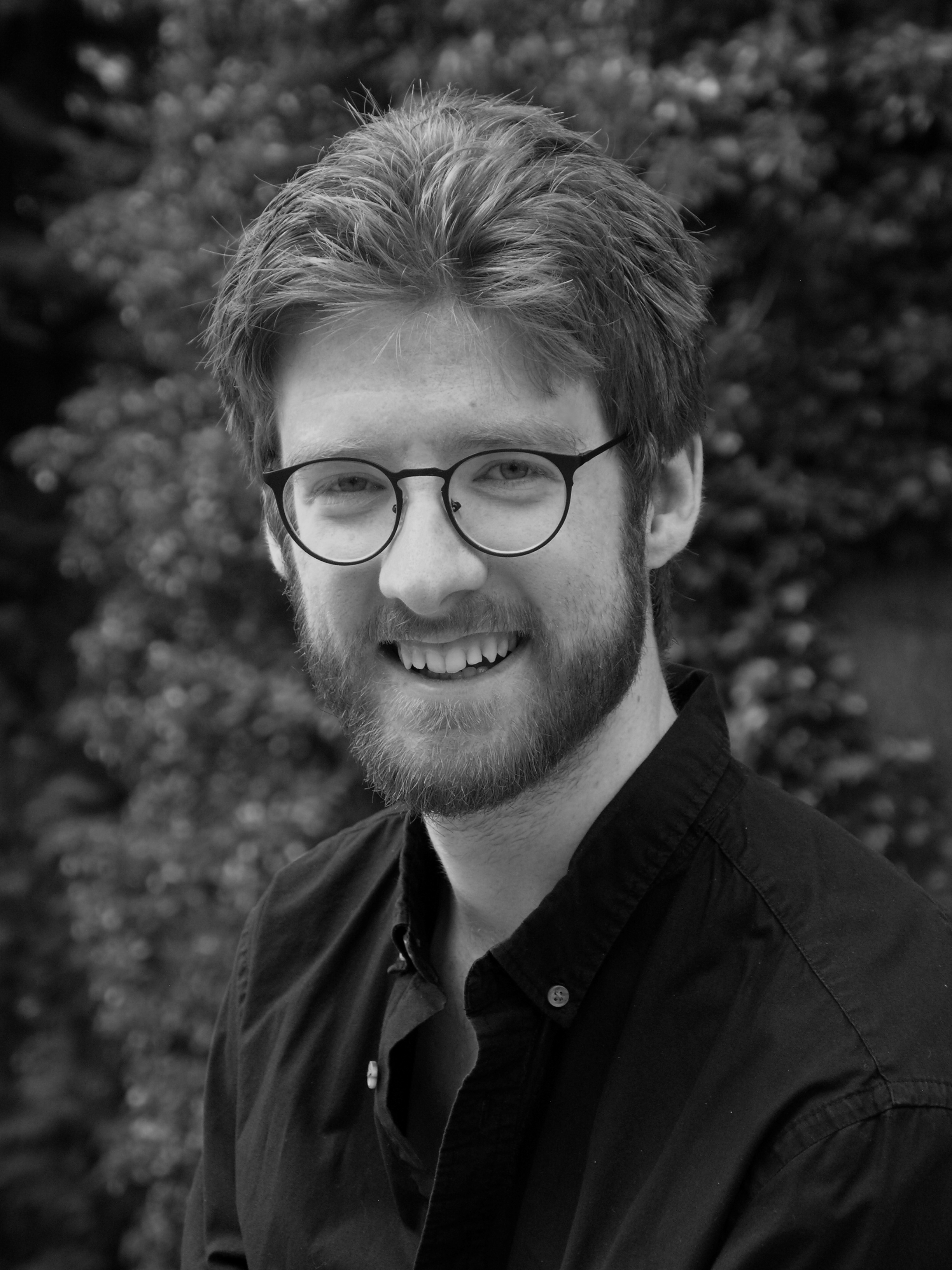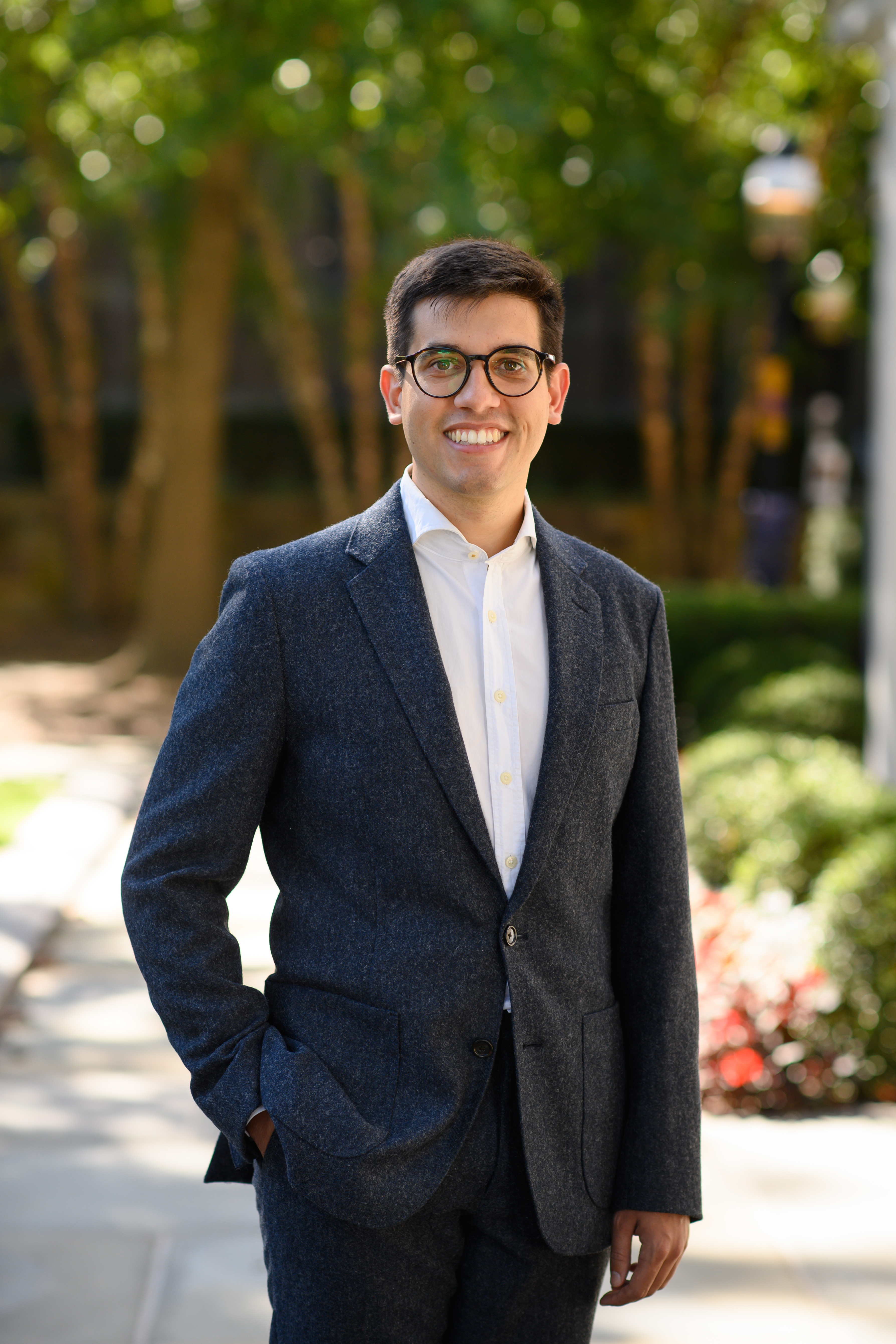We are happy to announce the two winners of this year’s Dissertation Fellowships, Lee Cannon-Brown and Marcel Camprubi.

Lee Cannon-Brown
Harvard University

Bio
Lee Cannon-Brown is a doctoral candidate in Music Theory at Harvard University. His research focuses on the history of early post-tonal music theory and has received support from the Paul Sacher Foundation and the Social Sciences and Humanities Research Council of Canada. In fall of 2022, Cannon-Brown was a lecturer at the University of Massachusetts Amherst, and from 2019–22, he co-chaired the Society for Music Theory’s Music and Philosophy Interest Group. He holds a B.F.A. in Music Composition from Simon Fraser University, and an M.A. in the Humanities from the University of Chicago.
Ultramodernism in Global Musical Thought, 1900–1950
Dissertation summary
In my dissertation, I re-evaluate the history of post-tonal music theory in the first half of the twentieth century, often referred to in its own time as “ultramodernist.” While U.S. and Canadian receptions of early post-tonal theory have long centered Arnold Schoenberg and his Second Viennese School, I reveal the cultural contingency of Schoenberg’s ideas within a global network spanning Eastern Europe, North America, and Latin America. By excavating a dialogue between the dissonant counterpoint of Henry Cowell (1897–1965), the non-octavating spaces of Ivan Wyschnegradsky (1893–1979), and the motivic transformations of Carlos Chávez (1899–1978) and Julián Carrillo (1875–1965), I recover post-tonal theory’s original richness and diversity, unlocking new canons and analytical frameworks for the present.
Marcel Camprubi
Princeton University

Bio
Marcel Camprubi is a historian of music and music theory specializing in the Arabic Middle Ages. His work on Baghdad and medieval Iberia is informed by extensive engagement with manuscript sources. He is a PhD candidate in musicology at Princeton University, holding a master’s degree from the University of Oxford. His research has been supported by the American Musicological Society (Alvin H. Johnson AMS 50), the Medieval Academy of America (E. K. Rand), and an Honorific Fellowship from Princeton University. Forthcoming publications include an article in Speculum and entries on medieval Arabic music treatises for the New Sources in the History of Music Theory.
Lines of Thought:
Notations and Histories of Music Theory from
Abbāsid Baghdad (762–1055)
Dissertation summary
This dissertation traces the emergence of Arabic music theory as a written discipline in the Arabic context. The project highlights the tensions that arose in Baghdad between a native Arabic tradition of music theorization and an emerging Greek-indebted theoretical tradition. Two phenomena, the Arabic book revolution and the large-scale translation of ancient Greek works into Arabic, created a unique set of conditions for the development of musical notation. I place al-Fārābī (870–950), the leading music theorist of the time, at the center of this story, showing how different facets and phases of his musical writings relate to this broader paradigm shift. Examining more than eighteen theoretical treatises alongside songbooks and compilations of musicians’ anecdotes, I demonstrate that notation was available to theorists and performers active in ninth- and tenth-century Baghdad but remained largely unpursued, defying narratives of technological determinism.
